Mike Tringe is the Co-Founder and CEO of CreatorUp, a digital content studio and generative AI platform company based in Los Angeles with offices worldwide. He has over twenty years of experience in entertainment, and technology, working as a filmmaker, and executive. Under Mike’s leadership, CreatorUp has transformed how digital content is created and purchased. Its unique “Studio as a Service” platform allows organizations of all sizes around the world to create generative AI, animated, live-action, immersive XR, and live-streamed content at scale by combining CreatorUp’s proprietary GenAI platform (Daisy) with a global network of talented creative professionals. Daisy was launched in early 2023 and helps creators produce engaging content, including lifelike avatar videos, while streamlining their workflow processes. As an LGBTQ+ founder, Mike is passionate about making great jobs accessible to a diverse pool of global creative talent through training and technology. CreatorUp is the product of that vision.
What does “entrepreneurship” mean to you?
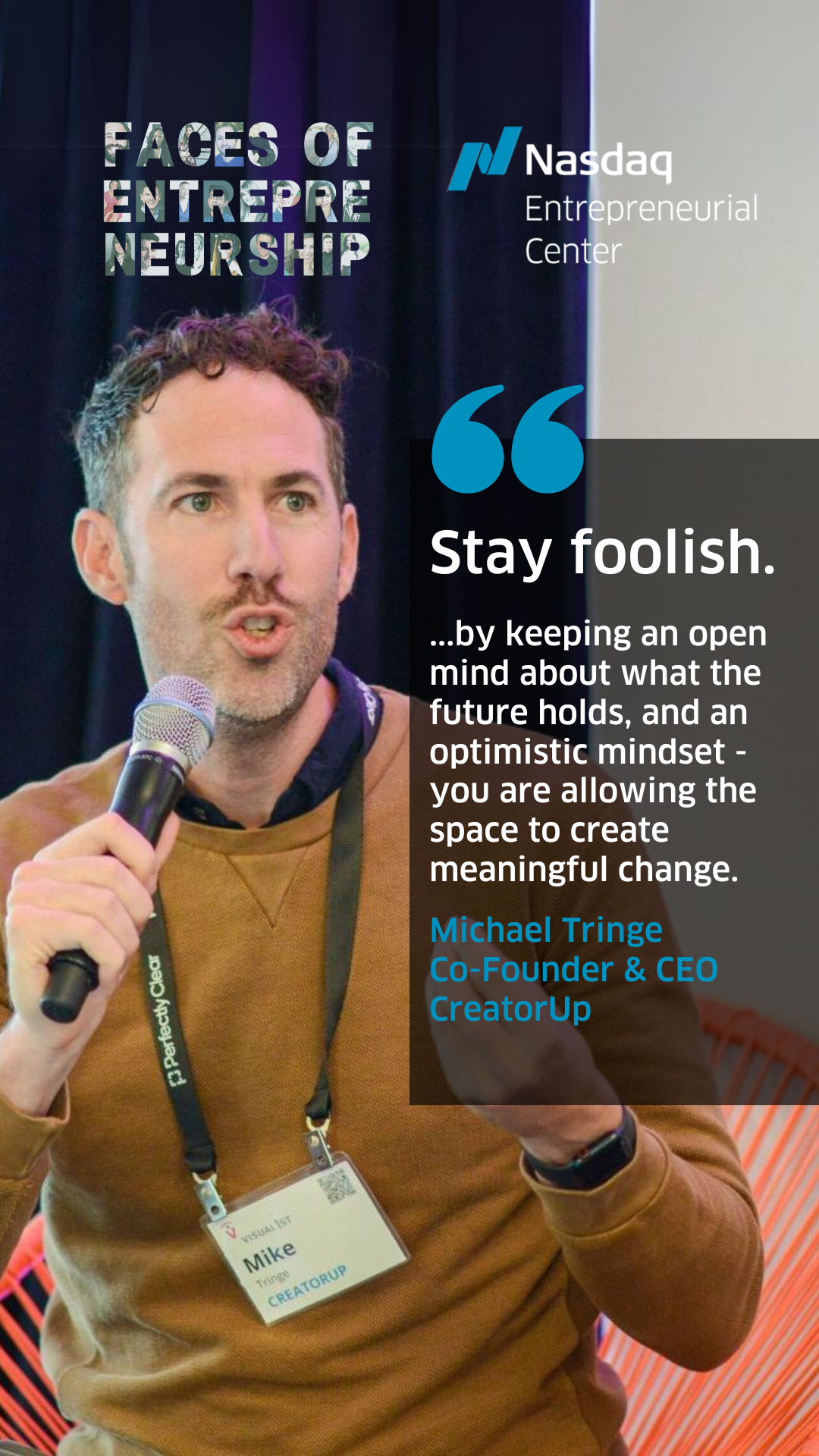 Michael Tringe: Entrepreneurship is a way of thinking and moving through the world. It’s seeing problems, creating solutions, and then naturally analyzing feedback and optimizing the solution. Rinse, repeat. An entrepreneur is empathetic, creative, curious, and focused – but most importantly, motivated by creating positive change that creates a deeper, lasting, and meaningful impact on society.
Michael Tringe: Entrepreneurship is a way of thinking and moving through the world. It’s seeing problems, creating solutions, and then naturally analyzing feedback and optimizing the solution. Rinse, repeat. An entrepreneur is empathetic, creative, curious, and focused – but most importantly, motivated by creating positive change that creates a deeper, lasting, and meaningful impact on society.
Tell us about your first experience with entrepreneurship.
MT: This is a fun one; I created a “bed and breakfast” for dogs!
What is your company’s origin story? What is the biggest reason you started your business? What did those early days look like and teach you?
MT: We started by creating educational resources for creatives – and we wanted to provide better access to creative skills education to the world’s 50M+ and growing community of creative professionals. What we learned was that creatives were also looking for better access to job opportunities – and pivoted to become a place where it was easy for companies to work with these creatives on new projects. More details linked in this post here.
What do you wish you knew when you started? Is there anything you would do differently?
MT: I think as many entrepreneurs may tell you – had they been able to see the challenges, they may not have started in the first place. But this is the “stay foolish” quote that I think is important to remember: by keeping an open mind about what the future holds, and an optimistic mindset – you are allowing the space to create meaningful change.
What does “success” look like for you? We’d love to hear your biggest, boldest dream. What do you think will help you achieve it?
MT: If we can help the world more easily tell their story through visuals, by leveraging technology and creative talent in synergy – that would be wildly successful for me.
What is your superpower as an entrepreneur? What is your proudest and darkest moment so far? Share a key high and a key low from your journey if you can.
MT: A superpower? Waking up every morning believing. Proudest moment? Helping the Special Olympics stream their medal ceremonies to parents with cell phone videographers. Darkest moment? Not knowing what would come next in a moment of flux. When GenAI came out – we weren’t sure how it would catalyze our business, so we leaned into it and brought a product to the market that brings creative talent and GenAI tools into one solution.
What are your personal driving principles, your top values?
MT: I believe in hard work, an innovative mindset, creativity, and collaboration. I think when you put those things together – truly transformative things can happen.
How have your personal principles and values shaped your company’s values and principles? Give us some examples.
MT: Collaboration is difficult to engineer because so often it depends on organic interactions over structured systems. I felt it was important to create a bonding space outside of the day-to-day meetings, and in a remote world, that was a time together to share success and challenges. We call this “team coffee” and it’s every Thursday for 60 minutes where we come together to talk and share personal and professional updates. It’s a wonderful magical glue that keeps us connected to each other – inspired and in tune with each other.
What’s it like to work alone or with your partners?
MT: Working alone is good to get things done once you have clear focus – working with partners is essential to testing ideas before you go live with them. I feel both are important towards being productive and innovative.
What role does mentorship play in your world (as a mentor or mentee)? Tell us about what makes mentorship valuable to you and your business?
MT: Mentors have played a huge role in my life; helping guide and steer my approach and teaching me and us about how to navigate new waters. We launched an executive advisor program which has invited key experts in different fields to help guide our product market fit. We also have enjoyed this type of mentorship from the Jobs for the Future Corporate Innovation Council. It’s essential to hear and listen to the market – and our executive advisors have helped us to do that.
Can you share some insights into the market or industry you operate in? How have you navigated challenges and changes in the market landscape?
MT: Media is an evolving landscape of pro-grade, creator-made, and tech-made digital content – the three are rapidly blending. This creates a nuance with how consumers engage with digital content, and a nuance associated with how digital content is made. For example – consumers tend to distrust pro-grade but enjoy it and accept it – think about ads, consumers tend to highly trust creator-made, because it’s “authentic” and “organic” – and consumers are still grappling with how to interact with tech-made, aka GenAI only content – however, initial indications point to a combination of awe, wonder, and fear. As these three elements come together – it will be important for the content creator solutions out there to have an index of some kind that can point to “how” content is made. This is like being able to pick up a can of green beans in the grocery store and being able to read the ingredients and or nutritional information. We take this simple transparent information for granted. It won’t be quite like that – but I could certainly envision a keychain of meta-data associated with the variety of tools that went into making something. This will likely be most important for the makers of content to share with each other, but in all likelihood – will have a simple consumer version as well. To the makers – it may resemble a project file – to the consumers, it will resemble an “organic” sticker on your bananas. We all know it’s not quite that simple- but it will be good enough to share signals with society about the media they are consuming.
Many entrepreneurs continue to perfect their daily routines to support their work and greater vision; would you mind sharing your morning routine or a regular ritual that grounds your work each day?
MT: This will sound very boring: Exercise, eat, work, walk, eat, work, walk, work, exercise, eat, take a break, sleep. I have found that without a religious routine, my productivity, creativity, and collaboration dips. I introduced the “walk” during COVID because I found that without it – sitting was the default. Now – walking for 30 min in the AM and 30 min in the PM is where I get some of the most productive mental work done that it takes to move things forward positively with reflection and care.
Where do you turn for inspiration?
MT: Movies. Creators. Nature. Inspiration is everywhere – it’s taking the time to stop and observe it that can be the challenging part. I started bird watching (lightly) a couple years ago and it reminds me that the birds have adapted over centuries to develop songs, behavior, and feathers that are completely unique to how they navigate their worlds. Much like we do with our ideas to navigate the changes in our environment.
Building and sustaining a business often involves overcoming various challenges. Can you share a specific moment where your entrepreneurial resilience was tested, and how did you navigate through it to ensure the sustainability of your business? What lessons did you learn from that experience?
MT: Which one?! Ha. The challenges are daily. But a big challenge came early on when it was clear that the learning only B2C model wasn’t working. We made some big changes and began focusing on B2B and offering media as a part of our solution to our clients. This made all the difference in our ability to really start growing and has helped the business evolve into what it is today.
Do you have a favorite quote, mantra, or words of wisdom to get through the tough days?
MT: I think about a note that my mom wrote me on the leather cover to a notepad that read “Mike Tringe, CEO” – it is a reminder to me that I have agency in the world and can drive forward with new ideas.
What is a problem that keeps you up at night?
MT: I think about the challenge between slow movers and fast changers. How can a fast mover affect change with slow movers? The key is finding the fast movers inside the slow movers…which isn’t always easy or obvious.
How do you think about helping others through your work?
MT: Listening. I try to just listen. Listening is a powerful thing – and it’s not easy to do. It takes focus, attention, care, and real presence. I’ve had to hone this over time – but I’ve gotten more intentional and better at it.
Have you faced any significant crises in your business, and how did you manage and overcome them?
MT: I think every business hits inflection points – I don’t think of them as crises. I think of them as moments where it’s clear that a change is needed – and while challenging, those inflection points are driven by insights that are giving you arrows towards what you need to do next. To ignore the insights – is what will cause a crisis. But to get ahead of it – you pay attention to signals and adjust.
What advice do you have for fellow (and aspiring) entrepreneurs building and leading teams?
MT: If I could advise entrepreneurs, it would be to surround themselves with people who are for you. It’s easy to bring people together who say they are for a common vision, but if they’re truly not for that vision, then it’s truly not a fit. Meet people face to face and have the tough conversations that lead to trust and understanding.
What kind of an entrepreneur do you want to be known as – as in, what do you want your legacy to be?
MT: An entrepreneur who saw something in the world that needed to change, brought together the people, ideas, and resources to do something very different – and who brought the vision to life in innovative and creative ways. Someone who united a team to accomplish a mission – to make media accessibility a reality.
Do you have someone you’d like to nominate to be profiled in our Faces of Entrepreneurship series? Please let us know by emailing media@thecenter.nasdaq.org or submitting your nomination using this form.
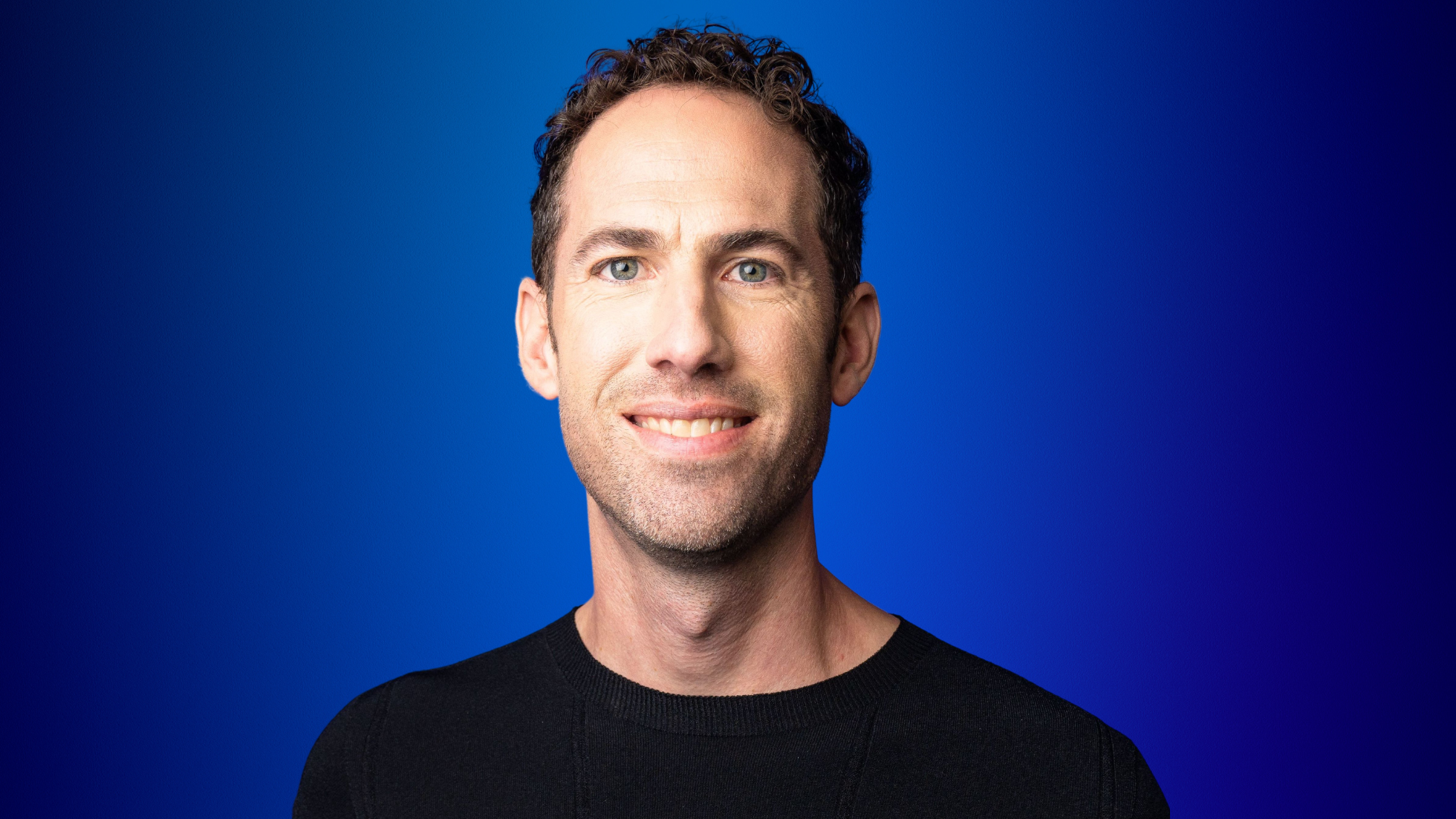
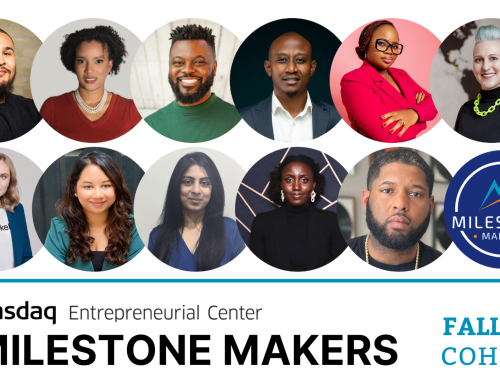
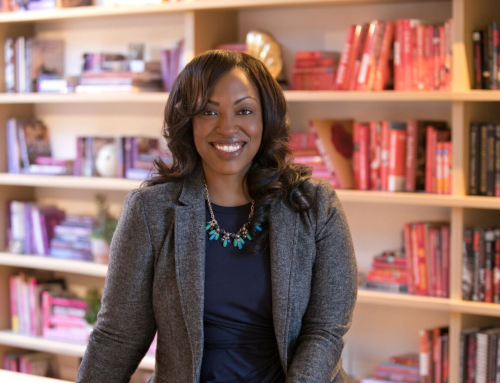
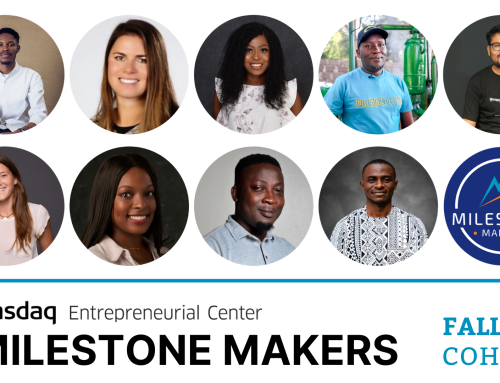
Invite a Friend
Close